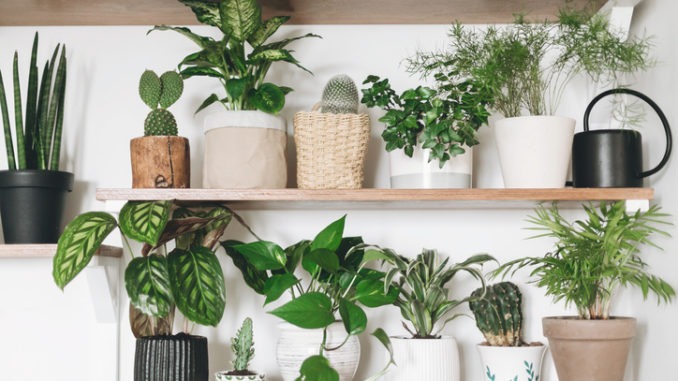
Masquerading as decorative houseplants, these everyday greens are working behind the scenes to bring the benefits of the great outdoors into your home
CREDIT: This is an edited version of an article that originally appeared on Happiful
We may not all be fortunate enough to have a garden at our disposal and, when we’re confined to the same four walls, the need to get outside, see green spaces, and breathe fresh air, can be great. With working from home now the norm for many of us, and the weather giving us summer sunshine, you’d be forgiven for yearning for a little green space to call your own.
Humans are intrinsically linked to the ecosystem – frankly, we couldn’t survive without it. So if you suddenly find yourself, and your household, with restricted access to the outside world, you may feel somewhat stifled by the air around you.
A study by NASA determined that bringing everyday houseplants into a sealed environment can be just the trick to make us feel more energised, alert and refreshed. By using specially formulated carbon filters and containers, they found that plants drew out toxins and harmful airborne bacteria from the air, converting them to new plant tissue.
And NASA was, of course, on to something. While this study was conducted in laboratory conditions, it did unearth some intriguing data about the power of plants, and was just the tip of the iceberg when it comes to the health benefits of owning a houseplant.
Reduces stress and anxiety
Much like exercising, or immersing yourself in wide open, green spaces, research suggests that taking care of a living plant can significantly reduce feelings of mild anxiety and stress, as a study published in the Journal of Physiological Anthropology points out. “Active interaction with indoor plants, like touching and smelling, can reduce physiological and psychological stress. What’s more, even the potting soil can help you to keep a handle on daily stress and anxiety.”
Combats mild health irritations
Common houseplants, such as the dracaena or peace lily, add to the humidity of your home, and can even aid dry skin complaints and itchy eyes. Particularly in winter, when we often stay inside and use artificial heating, a houseplant can reduce the effects of dryness through it’s process of transpiration. During this cycle, plants lose their leaves, releasing water into the air, which creates a more humid environment.
Encourages healthy sleep
What’s the best way to access oxygen? Going outside. But when we sleep, we’re likely to be restricted to four walls. However, fortunately, many plants are known to increase their oxygen emissions at night, and inhale the carbon dioxide we produce while asleep.
An increased oxygen flow is essential for a restful night, as it ensures we are able to breathe evenly, encourages cell renewal, and can calm symptoms of common sleep disorders such as sleep apnea.
Boosts productivity and creativity
A study conducted at the Chelsea Flower Show by the University of Exeter found that equipping offices with greenery can help to boost staff wellbeing by up to 47%! The study sought to challenge the previous notion that plants in the office “are an unnecessary or even wasteful element of the business environment”. And it succeeded.
“The results showed that allowing staff to make design decisions in a workspace, enhanced with office plants, can increase wellbeing by 47%, increase creativity by 45% and increase productivity by 38%.”
Prompts feelings of nurture and compassion
While it’s more common for us to feel these emotions in relation to pets, for some people, a pet may not be an option at this time. So what’s the next best thing? A living houseplant!
Bringing a living organism into your home promotes compassion and nurturing feelings; it provides you with a sense of purpose. Although you’re the demands made by a houseplant are not hugely significant, you can still feel a sense of responsibility. If you’ve ever accidentally forgotten to water your plant, you’ll know that the feeling of guilt can be pretty surprising.
Easy-to-care-for houseplants
Snake plant
Perfect for beginners and busy lives. Ensure the soil fully dries between watering, and avoid getting leaves wet. Keep the snake plant out of direct sunlight.
Aloe vera
The epitome of a houseplant with health benefits. Water your aloe vera roughly every three weeks, and position in bright, indirect sunlight. Harvest the gel when leaves reach about eight inches.
The peace lily
Position this floral beauty in the shade, keeping the soil moist but not overwatered.
Chrysanthemums
Unlike the peace lily, regular watering and direct sunlight will ensure your chrysanthemums blossoms.
English ivy
This thrives in bright, indirect sunlight, with evenly moist and well-drained soil.


Be the first to comment